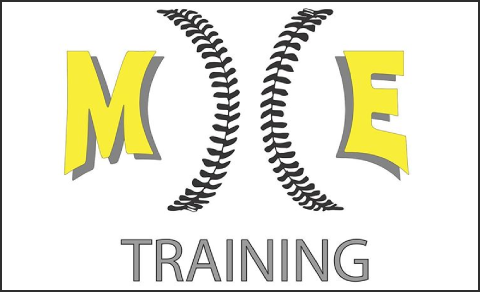The topic of the mental health in the game of baseball has gradually turned from taboo to widely accepted. Many players struggle with the mental side of the game to varying degrees. Fortunately, there are avenues to improve. People like Michael Huber offer their help to athletes as a means to improve and make the most out of their abilities.
Michael grew up on Long Island and is the owner of Follow the Ball, LLC where he helps young athletes be ready for every next step in the game of life through teaching invaluable mental, emotional and interpersonal skills.
I had a chance to speak with him and here’s what he had to say…
Could you tell our audience a little bit about what you do and how long you have been a Performance Coach?
I am a Certified Mental Performance Consultant accredited by the Association for Applied Sport Psychology. I call myself a “mental performance coach”. I believe the term coach is much more appropriate for the work that I do with young athletes. Consultant is what I was in my past life when I was working with companies. I returned to school for my master’s degree is sport psychology in 2017 and graduated in March 2020. When I finished school, I started my practice working with young athletes, typically ranging from 12 to 22 years old.
Why do athletes suddenly lose confidence in a sport that they may have been playing most of their life?
I’ll preface my answer to this question by saying every athlete is different and this is how I approach my coaching work. there may be many reasons why an accomplished and well-trained athlete loses their confidence. That said, I’ll cite identity as a primary reason. Let me explain. I find that many young athletes’ identities are centered around their sport – not dissimilar to my experience as a young athlete. So, when a young athlete doesn’t perform up to the level that they or others expect of them, it can be a huge blow to their ego. Rather than trusting their training and abilities, athlete begin to “play defense” so to speak – avoiding mistakes, worrying about failure. They might say things to themselves like, “don’t strike out” or “don’t hit the ball to me.” Ironically, their minds then become a roadblock to their best performance because it’s not allowing their body to do what it is naturally trained to do. And the cycle continues and the proverbial snowball grows. In those situations, my responsibility is to help them find a way to break that cycle and build a more sustainable mental approach to avoid drastic peaks and valleys going forward.
Would you say that the industry of performance coaching has come a long way in recent years? Are there still more hurdles to clear to make it less of a taboo topic among Major League clubhouses?
This is a great question. I think mental performance coaching has come a long way in the sense that it is more accepted as being “normal” and not just for those with problems to fix. That said, I don’t think mental performance coaching is seen as a necessity. It’s seen as a luxury or something to access when there is a significant challenge, like the so-called “yipes”. Every Major League Baseball team has a mental skills coach. Some teams have a team of mental skills coaches. However, even at the Major League level, my understanding is that not all players leverage what is an extremely valuable asset. To highlight the value of mental performance coaching, I’ll cite a fairly recent research student. Hayes (2019) found that MLB players that accessed mental skills coaching had careers that lasted 2.3 years longer than those that didn’t. The idea being that mental performance coaching builds the resilience required to endure the adversity associated with elevating through the professional ranks. Ultimately, it’s our job as mental performance coaches to obtain buy-in from baseball players by articulating the value of our work – whether it be in terms of on-field performance, longevity, and in the case of pros, money.
What percent of athletes would you say struggle with the mental side of the game?
I don’t think it would be inaccurate to say that 100% of athletes struggle with the mental game at some point in their careers. However, the percentage that are willing to say out loud that they are struggling is likely much lower than 100%. The vast majority of my clients are baseball players. I played baseball for more years of my life than not. I started for two years on varsity at Valley Stream North in Nassau County and then started playing again in adult leagues in my mid-20s through my early 40s. I know first-hand that baseball is one of the most mentally taxing sports one can play. The athletes that are honest with themselves, acknowledge that they are struggling mentally, and ask for help from someone who can help them are going to be way ahead of the game in my view. Perhaps, that is a bit self-serving, but if I didn’t believe it then I wouldn’t be in this very special field.
What are some healthy ways that athletes can deal with failure on the field?
My number one suggestion would be to reflect on how you define success. What I mean is that baseball players are conditioned to judge themselves on outcomes – statistics alone. From the time we start in t-ball or coach pitch at 4 or 5 years old, everyone clasp when we reach first base no matter how it happens. However, you can have a successful at-bat or make a successful pitch and still not get the desired result. A staple of my coaching work is to help clients get clear on what they can and can’t control. If a player does everything in his or her power to execute their plan with commitment, then I’d view this as a success. A question I love to ask baseball players is, “Would you rather go 10-for-10 with 10 bloop hits or 0-for-10 with 10 lasers right at someone?” The answers vary. However, the answer tells me a lot about a player’s mindset and then I can proceed with tailoring the coaching process accordingly.
Do physical injuries sometimes fester and impact the mental side of the game?
Absolutely. Returning from injury is one of the most difficult challenges any athlete faces. The time away from the game is hard, trusting others like doctors and trainers is hard, and the patience required through the healing process is hard. It can be lonely. It gives the athlete time to question themselves. “Am I going to return as good or as strong as before?” As I said earlier, athletes returning from injury often “play defense”. They are trying to protect their body. They are also trying to protect their ego. They are afraid to go 100% too soon, not only because of fear of reinjury. They are also afraid of performing at a lower level than expected in front of teammates and coaches. I also try to get athletes – injured or otherwise – to focus on the process. What can I work on now that I wouldn’t be able to otherwise if I was 100% healthy ? It is not easy for athletes to internalize this. However, having a mental performance coach supporting you through the recovery process is valuable just by virtue of having someone to speak to that is truly objective and not judging your on-field performance and controlling your playing time.
What’s the next frontier of improving the mental side of the game? For example, do you see teams having performance coaches in the dugout?
Great question. I believer MLB just modified their rules to allow mental performance coaches in the dugout. I posted about it on social media. For me, in-game observation and access is one of the most powerful evaluation tools that we have as mental performance coaches. We’re not looking at mechanics or focusing on results. We’re watching body language, facial expressions, routines and reactions. We connect those controllable elements of performance to what a player might have been thinking in a given moment, and attempt to provide real-time tips for making adjustments throughout the game.
Ultimately, the next frontier of mental performance coaching is biofeedback – monitoring bodily functions during performance to acquire date to make mental adjustments. For instance, monitoring heart rate tells us about and athlete’s stress level throughout a game. In what situations are they getting over-activated or nervous? How can they regulate that nervousness when needed? This is where basic skills like mindfulness and diaphragmatic breathing can be applied in stressful situations. I’m not nearly an expert in biofeedback, but others are and certifications exist to apply biofeedback in a competent way. I am excited to see where this element of our field goes in the future.





